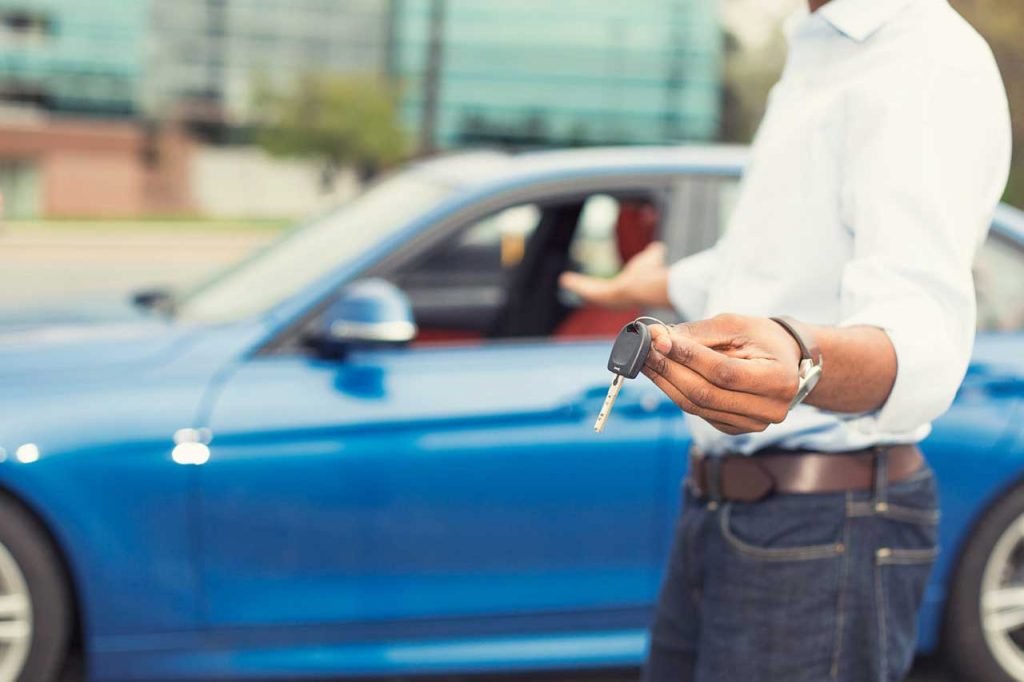Buying a used car from a private seller (a person or company that’s not affiliated with an auto dealership or manufacturer) can be a great way to save money. You can often negotiate a lower price in a private auto sale and avoid the dealership-haggling experience.
Although buying a used car from a private seller can save you money, it can also be risky. Most private sales on used cars are final. So, if you discover a car has defective brakes, airbags, or other hazardous defects after purchase, your options to receive a refund may be limited.
However, depending on the circumstances, you may still be able to get a refund on your vehicle. Here’s what you need to know about your options.
How Do Car Refunds Usually Work?
Most vehicles sold through a dealership or manufacturer come with a warranty, with the terms of coverage differing from state to state. Essentially, a warranty is a legal agreement that the dealer will cover certain manufacturing defects during the warranty period.
Suppose a mechanical defect that interferes with its use, value, or safety arises while your vehicle is under warranty. In that case, the dealer or manufacturer is required to fix it free of charge. If they are unable to fix the defect, the vehicle could qualify as a lemon, and you may be entitled to receive a buyback (refund) or replacement vehicle under your state’s lemon law.

Every state has its own lemon laws, which means there are different specifications to meet for your vehicle to qualify. States differ their lemon requirements on factors such as:
- The number of repair attempts a dealer can make before you can pursue a claim.
- Whether or not you can file a claim for a used vehicle.
- The length of time you can file a claim after the vehicle purchase date.
- Total mileage on the vehicle when you file a claim.
In most states, lemon laws only apply to new vehicles. However, some states, like California, have lemon laws for used cars still under warranty. In CA, warranties for used vehicles are usually good for 30 days or before 1000 miles accrue on the odometer. This is known as the dealer warranty.
Lemon law in California can be a complex process due to the unique requirements with used vehicles. Therefore, if you bought a defective used car in CA, it’s important to consult a California lemon law lawyer for guidance before pursuing a claim. A qualified attorney can help review your situation and take appropriate actions to protect your rights before the statute of limitations expires.
How Do Refunds Work with a Private Seller?
Receiving a car refund from a private seller can be tricky. Other than transferring the title, there aren’t usually any formal contractual agreements between the buyer and the seller during a private auto sale, and the sales are often final.
However, if the vehicle you purchase during a private auto sale is still covered under the original warranty, you can potentially seek a buyback via lemon law. In this case, the buyback would go through the vehicle manufacturer, not the private seller that sold you the car.
Keep in mind, auto manufacturers are notorious for making it difficult for consumers to seek buybacks through lemon law. Instead, they will often try everything in their power to avoid responsibility. For instance, they may argue that the defect isn’t substantial enough to qualify, or that the damage was caused by driver negligence.
A real-life example of this comes from an Indiana case where a couple filed a lemon law claim against Ford Motors after their F-150’s engine began misfiring at high speeds. Ford argued that the defect did not impede the vehicle’s use or safety, so it didn’t warrant a buyback.
The court eventually ruled in favor of the couple, awarding them a full refund of their purchase price – but the case lasted two and a half years. To avoid such prolonged and complicated processes, you must gather as much evidence as possible before filing a lemon law claim with the manufacturer.
With the help of an experienced lemon law attorney in your state, you’ll need to prove:
- The defect was not a result of driver abuse.
- You gave the manufacturer the required number of repair attempts.
- The defect occurred within the warranty period and substantially impaired its use, value, or safety.
What if There is No Warranty?
Most cars bought through private sales do not have a warranty and are sold “as is”, which means they are not covered under any warranty. When you purchase a used car “as is”, you take full responsibility for any issues with the vehicle after the sale. This means you have no legal recourse to file a lemon law claim against the manufacturer.
If you don’t feel confident about a vehicle’s quality, trust your gut, and avoid the purchase.
How to Avoid Problems in a Private Car Sale
People get burned in private car sales all the time. Whether it’s over the price of the vehicle, an underlying defect, or some other issue, private sales are rife with pitfalls that can trap buyers.
Here are some steps you can take to minimize the risk of a bad purchase from a private seller:
- Get a pre-purchase inspection from a trusted mechanic. If the seller isn’t ok with this, move on.
- Research the vehicle thoroughly to see if it has a reputation for issues or recalls
- Take it for a test drive and listen for telltale signs of problems, such as engine knocking, squeaks, or any other unusual noises.
Additionally, you should always research the VIN. This way, you’ll have the vehicle’s history, which can help you when you begin negotiating a sale with a private seller.
Wrap Up
When purchasing a used vehicle from a private seller, you are usually at the mercy of the seller when it comes to potential returns. However, this doesn’t mean that you’re out of options altogether. There are several legal protections available to prevent unfair private sales – you just have to know where to look.
Keep in mind: the longer you wait, the more challenging it becomes to receive a car refund. So, if you notice an issue, act on it.
Author Bio:
Brian K. Cline’s Lemon Law Legal Group provides premier legal services. Our California lemon law lawyers aggressively and ethically force vehicle manufacturers to buy back defective and dangerous vehicles. Our team includes experienced trial lawyers with over 40 years of combined trial experience.

